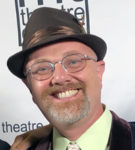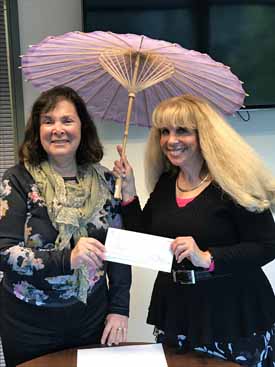By Eric George Tauber


SAN DIEGO — Three years ago, we lost my darling wife, Jackie Tauber to cancer. The loss of such a precious, loving soul was devastating. She was the type of person who could take tears of pain and turn them into laughter. Around her, people felt the freedom to be creative and even silly. Losing her meant losing part of our own souls that we shall never get back.
The type of cancer that Jackie had is called Metaplastic Breast Cancer. It is very rare and highly aggressive. Patients live an average of fifteen months from their first diagnosis and almost no one survives it. It spreads quickly, mutates and even hides. During her treatment, we thought we were winning the battle. There were signs in her skin of the cancer being beaten. But this was only the visible cancer. There was another, stronger cancer in her lungs against which the meds weren’t even making a dent.
My mother-in-law, Dale Kaufman needed to do something positive with her grief rather than give in to despair. She wanted to fight the insidious monster that had robbed her of her daughter and best friend. While there are several well-known foundations that fight cancer, the truth is that they mainly fight the more common types of cancer. Likewise, pharmaceutical companies prefer to develop medicines that will help the largest number of patients.
To this end, we created the JBKT (Jaclyn Beth Kaufman Tauber) Memorial Fund through the San Diego Jewish Community Foundation. Soliciting donations from family and friends, we’ve raised $10,000 each year for the past three years. On Monday, Jan 28, 2019, Dale and I presented a check for $10,036 (10k + a double chai) to Dr. Razelle Kurzrock, the Director of the Rare Tumor Clinic of the Moores Cancer Center at UC San Diego toward her research into rare cancers.
What Dr. Kurzrock told us in our meeting was very informative and encouraging. What cancer cells do is figure out how to turn off the body’s immune system, like turning an ignition key to off. Immunotherapy is essentially a way to hot-wire the body, turning its immune system back on.
She further explained that Immunotherapy works very well with rare tumors precisely because there are so many mutations. A few years ago, when a patient’s cancer presented multiple mutations, doctors wrung their hands, unable to help them. Now they are excited when they see multiple mutations because they know that Immunotherapy can give them a fighting chance.
The reason is that when a cancer has only one mutation, it doesn’t seem radically different from normal cells. So the body doesn’t necessarily perceive it as a threat. But clumps of cells with multiple mutations stand out like foreign soldiers in the marketplace. This tells the body what to attack.
“You can feel, you can almost taste, that we’re getting close [to a cure]. We’re not there yet, but we’re not blind anymore.” –Dr. R. Kurzrock
No treatment will ever bring back my darling wife. But Jackie was instilled with the Jewish value that saving even one life was like saving the world. May we all do what we can so spare others the anguish of watching their loved ones consumed by the insidious monster called cancer.
Donations to the JBKT Memorial Fund can be made through the Jewish Community Foundation of San Diego.
*
Tauber is a freelance writer based in San Diego. He may be contacted via eric.tauber@sdjewishworld.com